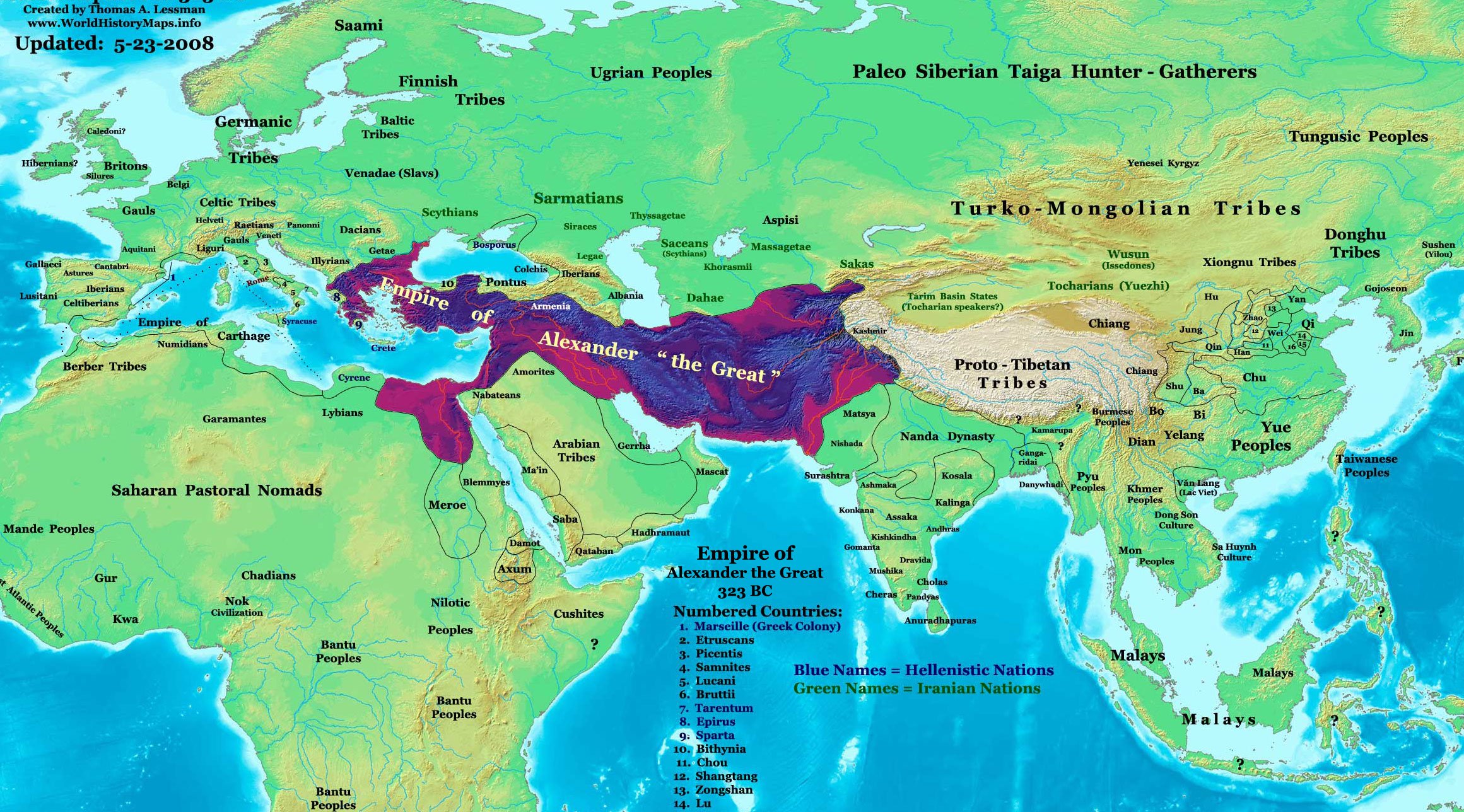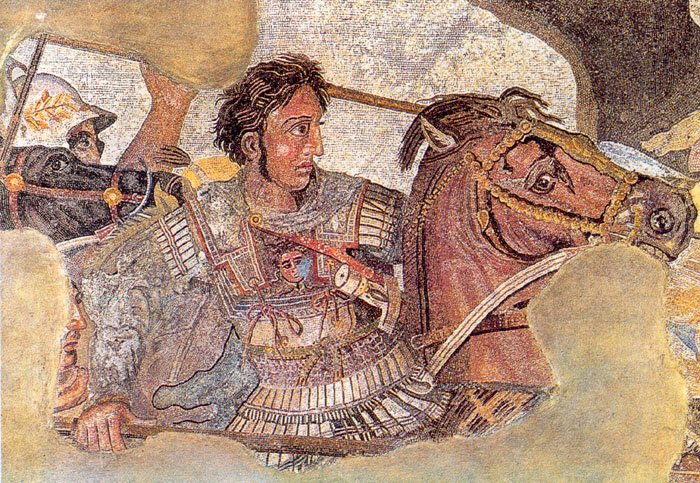How Did Alexander The Great Die?
Ellen Lloyd - AncientPages.com - For years historians have been trying to solve one of the greatest ancient mysteries of all time, namely the death of Alexander the Great. Many speculations have been put forward, but we still cannot answer the question: How did Alexander the Great die?
Scientists think they might know what caused his death, but they cannot prove it.
Alexander the Great, the Greek King of Macedon and ruler of one of the largest empires in the ancient world died in 323 B.C. at the palace of Nebuchadnezzar II in Babylon when he was only 32 years. But what exactly caused his death remains unknown. Alexander the Great had a high fever for several days. He was unable to speak and walk. Twelve days later he was dead.
Alexander's empire was the largest state of its time, covering approximately 5.2 million square km. Image credit: Wikipedia
Some argue that he passed due to natural causes while others believe he was secretly murdered using poison at a celebratory banquet.
Many historians attribute his death to disease. Basically it could be anything from typhoid fever, malaria, smallpox, and leukemia. Some scholars have proposed alcoholism, infection from the lung wound, and grief - Alexander's close friend Hephaestion had died some months earlier.
Was Alexander The Great Poisoned?
According to Dr Leo Schep, a toxicologist from New Zealand's National Poisons Centre Alexander the Great could not have been poisoned with for example arsenic death would have come too fast.
Based on what we know from the writings ancient Greek historian Diodorus, Alexander the Great was struck with pain after drinking a large bowl of unmixed wine in honor of Hercules. Complaining that he did not feel well, Alexander the Great went to bed and his health steadily deteriorated as fever wracked his body.
Alexander the Great had a high fever for several days before he died. Image credit: History.com
Dr. Shep thinks that Veratrum album, a poisonous plant from the lily family also known as white or false hellebore was used to kill the Greek King of Macedon.
Often fermented by the Greeks as an herbal treatment for inducing vomiting, importantly, it could account for the 12 days it took for the leader to die.
Who Would Want To Kill Alexander The Great?
Alexander the Great had a number of enemies who would like to see him dead. In addition, Alexander's generals also felt pushed too far by his military ambitions.
See also:
Battle Of Gaugamela – Alexander The Great Defeats Darius III Of Persia – On Oct 1, 331 BC
There is some evidence that not even Alexander's senior commanders were willing to follow him anywhere. In India in 325 BC, at the eastern edge of the Indus river system, Alexander's army staged a sit-down strike, when ordered to march eastward towards the Ganges.
Even the highest-ranking officers took part in the mutiny. So, many would benefit from his death in a number of ways.
Unfortunately, despite all theories and speculations, the actual cause of death cannot be proven and we will simply never know what really caused the death of Alexander the Great.
Written by - Ellen Lloyd – AncientPages.com
Copyright © AncientPages.com All rights reserved. This material may not be published, broadcast, rewritten or redistributed in whole or part without the express written permission of AncientPages.com
Expand for referencesMore From Ancient Pages
-
 Mystery Of The Ancient Forgotten Mizoram Civilization And Lost City Of Vangchhia
Civilizations | Jun 16, 2020
Mystery Of The Ancient Forgotten Mizoram Civilization And Lost City Of Vangchhia
Civilizations | Jun 16, 2020 -
 Cerne Abbas Giant: Researchers Attempt To Determine Age Of Giant Figure
Archaeology | Mar 27, 2020
Cerne Abbas Giant: Researchers Attempt To Determine Age Of Giant Figure
Archaeology | Mar 27, 2020 -
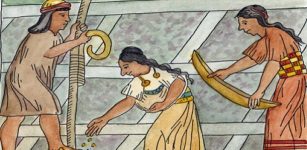 Why Was Ayllu Very Important For The Inca People?
Ancient History Facts | Feb 19, 2019
Why Was Ayllu Very Important For The Inca People?
Ancient History Facts | Feb 19, 2019 -
 Secrets Of Lake Huron – Mysterious Disappearance Of Long-Lost Steamship Solved
Archaeology | Nov 3, 2023
Secrets Of Lake Huron – Mysterious Disappearance Of Long-Lost Steamship Solved
Archaeology | Nov 3, 2023 -
 On This Day In History: Father Of Nation Mahatma Gandhi Was Born – On Oct 2, 1869
News | Oct 2, 2016
On This Day In History: Father Of Nation Mahatma Gandhi Was Born – On Oct 2, 1869
News | Oct 2, 2016 -
 Mystery Of The Proto-Elamite Tablets – Cracking The World’s Oldest Undeciphered Writing
Artifacts | Oct 29, 2012
Mystery Of The Proto-Elamite Tablets – Cracking The World’s Oldest Undeciphered Writing
Artifacts | Oct 29, 2012 -
 Lady SAS – Ancient Skeleton Of Foreign Woman Found In Palenque – Who Was She?
Archaeology | Apr 11, 2023
Lady SAS – Ancient Skeleton Of Foreign Woman Found In Palenque – Who Was She?
Archaeology | Apr 11, 2023 -
 1,800-Year-Old Buddhist Stupa And Relics Discovered Near Bazira, The Ancient City Of Alexander The Great
Archaeology | Feb 11, 2022
1,800-Year-Old Buddhist Stupa And Relics Discovered Near Bazira, The Ancient City Of Alexander The Great
Archaeology | Feb 11, 2022 -
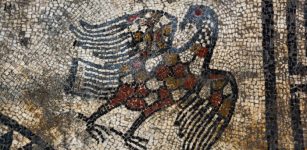 Beautiful Mosaics Reveal Ancient Secrets Of Unknown Roman City Ucetia In France
Archaeology | Apr 7, 2017
Beautiful Mosaics Reveal Ancient Secrets Of Unknown Roman City Ucetia In France
Archaeology | Apr 7, 2017 -
 Incredible Trove Of 100,000 Ancient Coins Tied Together In Bundles Uncovered In Japan
Archaeology | Nov 13, 2023
Incredible Trove Of 100,000 Ancient Coins Tied Together In Bundles Uncovered In Japan
Archaeology | Nov 13, 2023 -
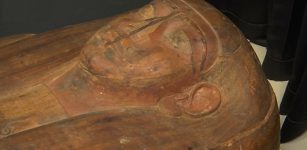 ‘Empty’ Egyptian Coffin Kept In Museum Contained A 2,500-Year-Old Mummy
Archaeology | Mar 31, 2018
‘Empty’ Egyptian Coffin Kept In Museum Contained A 2,500-Year-Old Mummy
Archaeology | Mar 31, 2018 -
 Unique Maya Center Of Copán With History Recorded In 2500 Hieroglyphics
Civilizations | Nov 7, 2018
Unique Maya Center Of Copán With History Recorded In 2500 Hieroglyphics
Civilizations | Nov 7, 2018 -
 On This Day In History: Treaty of Calais Ratified Between France And England – On Oct 24, 1360
News | Oct 24, 2016
On This Day In History: Treaty of Calais Ratified Between France And England – On Oct 24, 1360
News | Oct 24, 2016 -
 Harappan Civilization Built Massive Protection Walls Against Tsunami 5,000 Years Ago
Archaeology | Jan 10, 2017
Harappan Civilization Built Massive Protection Walls Against Tsunami 5,000 Years Ago
Archaeology | Jan 10, 2017 -
 Mysterious Runic Inscription Found In Mighty Viking Ship Burial Surprises Archaeologists
Vikings | Mar 25, 2025
Mysterious Runic Inscription Found In Mighty Viking Ship Burial Surprises Archaeologists
Vikings | Mar 25, 2025 -
 Circular Stepped Pyramids Of Guachimontones And Teuchitlan Tradition – A Lost Ancient World In Mexico
Civilizations | Mar 13, 2016
Circular Stepped Pyramids Of Guachimontones And Teuchitlan Tradition – A Lost Ancient World In Mexico
Civilizations | Mar 13, 2016 -
 Lincolnshire’s Prehistoric Henge And A Sacred Site Dating Back Hundreds Of Years
Archaeology | Apr 6, 2024
Lincolnshire’s Prehistoric Henge And A Sacred Site Dating Back Hundreds Of Years
Archaeology | Apr 6, 2024 -
 4000-Year-Old Egyptian Leather Manuscript Forgotten For More Than 70 Years – Found
News | Sep 14, 2015
4000-Year-Old Egyptian Leather Manuscript Forgotten For More Than 70 Years – Found
News | Sep 14, 2015 -
 ‘Sensational’ Discovery Of Large Untouched 4,000-Year-Old Grave In Norway
Archaeology | Nov 10, 2023
‘Sensational’ Discovery Of Large Untouched 4,000-Year-Old Grave In Norway
Archaeology | Nov 10, 2023 -
 Rings Of Moray – Sophisticated Irrigation System In Sacred Valley Of The Incas, Peru
Ancient Technology | Sep 11, 2015
Rings Of Moray – Sophisticated Irrigation System In Sacred Valley Of The Incas, Peru
Ancient Technology | Sep 11, 2015

